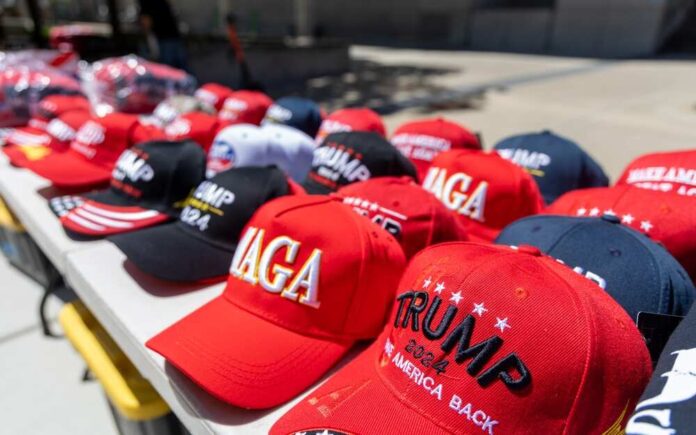
New York Woman Sues Mets for $2 Million Over MAGA Hat Incident at Citi Field Aura Moody, a 64-year-old social worker, has filed a $2 million lawsuit against the New York Mets and Citi Field, alleging discrimination and violation of her constitutional rights. The lawsuit, filed in Brooklyn Federal Court on September 6, stems from an incident on August 14 during a Mets home game against the Oakland Athletics.
New York woman sues Mets for $2 million after being barred from wearing Trump MAGA hat in Citi Field: report https://t.co/ZaseLXvBxe
— Fox News (@FoxNews) September 21, 2024
Moody claims she was barred from entering Citi Field while wearing a “Make America Great Again” (MAGA) hat. According to the lawsuit, a staff member told her the hat was “too political” and not allowed in the stadium. Moody, who was attending the game with members of the Queens Village Republican Club, observed other White members of her group inside the stadium wearing MAGA attire.
The incident escalated when Moody attempted to de-escalate the situation by asking to put her hat in her bag, but was denied. Feeling racially targeted and politically retaliated against, she requested to speak to a supervisor. The supervisor confirmed the policy, forcing Moody and her friend to return their hats to their vehicle.
Moody is accusing the Mets of “racial discrimination and political retaliation” and “reputational harm.” She argues that the ban violated her right to free speech and caused emotional distress. The lawsuit seeks $2 million in damages.
In response to the incident, a Mets spokesperson stated that the employee was mistaken about the attire policy. The team has acknowledged a mistake in their attire policy enforcement and plans to apologize to Moody. A team representative assured her that there is no policy against wearing a MAGA hat and that staff had been retrained. Moody has not returned to Citi Field since the incident and is uncertain if she will.
The case has sparked public debate and legal analysis, with supporters emphasizing free speech and opponents defending private entities’ rights to enforce policies. This incident is not isolated. A similar situation occurred with the Arizona Cardinals, who apologized to a woman told to remove her MAGA hat before entering State Farm Stadium.
The Cardinals clarified that their policy on political items was misunderstood and apologized to the individual involved. The lawsuit raises questions about balancing private policies and constitutional rights. Legal experts are divided on the strength of Moody’s case and its potential implications. The outcome could set a precedent for handling similar incidents in the future, potentially influencing policies in sports venues and public spaces.
As the case unfolds, it underscores the ongoing tension between individual expression and institutional policies in public spaces. The incident has reignited discussions about the extent of First Amendment protections in private venues and the role of political expression in sports arenas.
🚨 JUST IN: A Black woman is suing the New York Mets for $2 MILLION after she was told she had to remove her MAGA hat before she could enter the stadium.
I HOPE SHE WINS EVERY PENNY! 👏 pic.twitter.com/Jqcw8ANzd9
— Proud Elephant 🇺🇸🦅 (@ProudElephantUS) September 21, 2024














